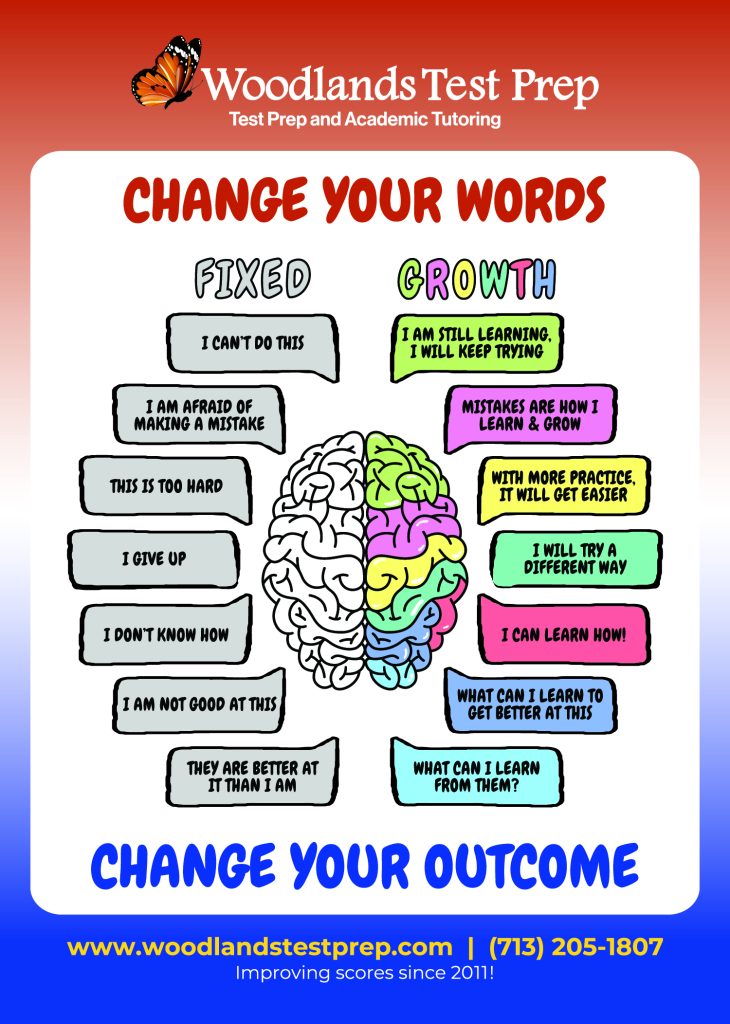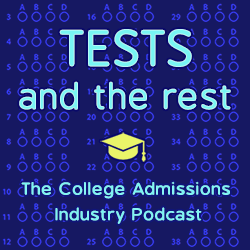Test Optional: Does that mean I can skip taking the SAT or ACT?
Nope. While it may be easier to apply, it is NOT easier to get in – at all.
Let’s break down this topic into some manageable chunks.
• What does a “test optional” policy mean? It means that schools don’t require test scores for a complete application. This is in contrast to a “test blind” application policy such as that used by the University of California system and California State University system. These schools will specifically not consider your test scores even if you send them.
During the pandemic, most colleges announced a change in their application policies for the class of 2021 to a test optional policy because most students had no access to testing opportunities. Many colleges extended that policy to the class of 2022. However, the University of Tennessee system, Auburn, MIT, and Georgetown have announced that future classes will need to submit scores with their applications, and many other colleges (in Florida, Georgia, and Tennessee in particular) have already returned to (or never stopped) requiring scores so be prepared for more colleges to follow suit. You can check the policy of the colleges you’re interested in here.
• What happens when a college goes test optional? Colleges experience at least two changes when they go test optional: average test scores rise and admission rates decrease. Average test scores rise because students who are lower-scoring do not report their scores, so the overall average rises for the incoming class. Admission rates fall because students (incorrectly) perceive that it is easier to be accepted and more students apply while the number admitted stays the same.
These effects were seen again during the 2022 application cycle. The most selective colleges in the U.S. saw enormous (sometimes even double!) increases in applications from pre-pandemic levels.
Both of these changes benefit the college, NOT the student. In some cases, students also benefit from these policies, although that isn’t clear overall. While test optional does create a new avenue for students who truly struggle with standardized testing; schools clearly value test scores as a validation of grades and transcripts.
Grade inflation is real. According to the College Board, over 60% of college applicants in the class of 2021 obtained a 4.0 or better. According to ACT, Inc., grade point averages have risen over the last several years while ACT scores have fallen slightly.
According to the GPA data on over 18,000 college freshmen taken from the “American Freshman Survey,” an annual survey done by the Higher Education Research Institute at UCLA since 1966 (with 2 years missing due to the pandemic), a whopping 80.6% of entering college freshmen report an A average GPA in high school!

Bottom line: while it may be easier to apply, it is not easier to be admitted – at all.
• Should I send my test score? Briefly, if your scores are additive to your application, you should send them. If you’re not sure whether your scores are additive, you should probably still send them. Because of the increase in average test scores over the last couple of years, when comparing your score to a prospective university’s range, be sure to look at their ranges pre-pandemic.
According to data from the most recent admissions cycle, students applying with test scores were admitted up to 2.7 times as frequently as students who applied test optional! That’s a clear preference for applications for scores.
While students in the (pandemic) class of 2021 had significantly fewer testing opportunities, students in the class of 2023 have normal opportunities to test. Selective colleges will expect and receive scores from most applicants. Like many other “optional” pieces of a college application, the most competitive students will be submitting all the optional pieces, including test scores.
• What does the future hold? I don’t have a crystal ball, but if Auburn, MIT, the University of Tennessee system, and Georgetown’s recent decisions are any indication, many test optional policies will continue to revert to test required. According to MIT, test scores help them more accurately assess a student’s readiness for their program.
MIT’s Dean of Admissions Stu Schmill said, “We are reinstating our requirement, rather than adopting a more flexible policy, to be transparent and equitable in our expectations. Our concern is that, without the compelling clarity of a requirement, some well-prepared applicants won’t take the tests, and we won’t have enough information to be confident in their academic readiness when they apply. We believe it will be more equitable if we require all applicants who take the tests to disclose their scores.”
In other words, top-tier colleges care about your test scores. They adopted test-optional policies so students who did not have the chance to take the exam due to Covid-19 could still apply. Data coming out (like from here) proves that test scores matter, and it’s possible that other schools will soon follow MIT’s lead in transparency and drop their test-optional policies. In fact, according to a survey by Ernst & Young and the Parthenon Group conducted in 2021, 20-30% of universities surveyed claimed they would likely move back to test-required policies within 3-5 years. Selective schools including Stanford have openly discussed their intent to once again require a college entrance exam score, and Yale has echoed MIT’s sentiments about the importance of test scores when making admissions decisions.
Other schools, including University of Texas at Austin, University of North Carolina, and certain schools within the University System of Georgia announced a return to requiring college entrance exams and then shortly reversed their decisions. Remember, test-optional policies benefit the school, not often the student, and schools might be slow to relinquish their boost in ratings due to increased selectivity and average test scores. However, as universities continue to follow the path of MIT, it seems likely that more schools, especially those considered selective, will join this game of follow-the-leader.
• So what to do? Due to uneven transcripts with uneven high school experiences and very real grade inflation, most college admissions staff view test scores as a known quantity that can validate your application. A solid strategy is to work toward getting the best score you can but don’t send your scores right away. Once you are ready to apply, you can decide if your scores help your application if you’re applying to a test-optional school.
As always, Woodlands Test Prep is here to help you through this process. Call us at 713-205-1807 for your free consultation, and we can discuss if test prep tutoring would help your student on their college journey. Remember, we teach; you relax!
















